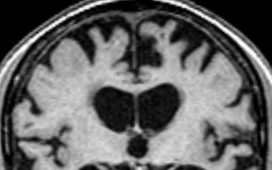A recent YouGov poll shows that the British are among the most willing in the world to take the Covid-19 vaccine. This is good news. But there are still questions about the vaccines and the way they’re being deployed, especially after the government decided to spread out the time between the two doses from three weeks to 12 weeks. The confusion is understandable, as we are in a developing situation. Clear messages about why tough decisions are made can get lost in the noise.
First, it is absolutely clear that the two Covid-19 vaccines that are being deployed in the UK will save lives. Moreover, they will reduce the burden on hospitals. The Pfizer data, measured from day 14 post-vaccination, showed only one severe case of Covid-19 in 21,000 vaccinated people. The AstraZeneca data showed no hospitalisations or severe disease in 6,000 vaccinated trial participants. The caveat to this was that there were a small number of cases in the first two months after the first vaccine dose. This brings me to an important point.
The vaccines need time to work. Vaccines prepare our immune system to defend against infection by showing it a small part of the virus, in this instance a “spike protein” that appears on the outside of the Sars-CoV-2 virus. Our immune system produces a bespoke response to this protein, making antibodies and memory cells which it stores away against future need. Creating these initial antibodies and memory cells can take a couple of weeks, so there is a lag time before you start to be protected. If our immune system later sees the spike protein again, it can bring out all its pre-made resources to act immediately.
So why do we need two jabs? Immunity elicited by the vaccine can be boosted. When the spike protein appears a second time and the immune system brings its armoury out, the immune memory cells will rapidly increase in number and more antibody will be produced to neutralise the virus. This will happen whether the spike protein is in the vaccine or on a live virus. To get the best response possible, the current vaccines were designed to have a second “boosting” dose after the first “priming” dose.
The UK government’s decision to change the timing of the second vaccine dose has been controversial. After all, if you have evidence that scheme A works, why would you use an untested scheme B? But the decision will not have been taken lightly and there is some basis in the current data available. AstraZeneca trials reported early indications that a longer interval between doses is beneficial. Pfizer trials did not have such data, but the similar Moderna vaccine elicited immunity lasting just under two months after one dose. It boiled down to simple sums based on real-world scarcity: if a vaccine protects people from disease by 89% after one dose and 95% after two doses, and someone gives you just 200 doses this month, you can choose to protect 95 people after three weeks or 178 people for 12 weeks.
One worry is that the change in timing could encourage “virus escape”, resulting in worrisome new variants. The rationale is that if you don’t kill off a virus immediately, mutations will enable the virus to survive better. But it has equally been argued that allowing natural infection would also be a reason to cause mutations. After all, the new variants that concern us now – from England, Brazil and South Africa – appeared before vaccines were rolled out. Also, simply by fighting the virus with these vaccines we are putting it under pressure to evolve. An optimistic view is that our immune memory is diverse and dynamic enough to adapt and counter any viral escape. It is encouraging that early data from the mRNA vaccines show they work against some of these variants. Close monitoring of the situation is necessary, but in the face of the current emergency we should try to save as many lives as we can as soon as possible.
This is why it’s crucial that we do not change our good social behaviour just because of vaccination. Even with 95% vaccine efficacy, one in 20 people could get Covid-19. We also need to consider virus carriage and transmission. When we catch the virus, our immune systems immediately roll out to fight it. The response may be so effective that we don’t have any symptoms or even realise that the virus has briefly inhabited our bodies, yet we could still have passed it on to others.
We do not yet know to what extent the vaccines block this type of virus transmission. The recent reports from Israel of up to 60% protection after just one dose do not really contradict the Pfizer study data (which show 89%), because the former measured the presence of the virus and the latter measured disease symptoms – they may simply illustrate the point that protection from disease is not the same as protection from having the virus, and 60% protection from carrying the virus is encouraging.
Immunity is not all or nothing. There are degrees of protection depending how good the vaccine is and how good your immune system is in responding to it. Some factors, such as age, health status, and type of virus variant, may mean that immunity is reduced. What we urgently need now is robust monitoring of the vaccine rollout to help us understand how different individuals’ immune systems respond to the vaccine, how the vaccines work against the different variants, and how the changes in dosing schedule affect the efficacy of responses. This will help us be more certain of our answers in the future.









